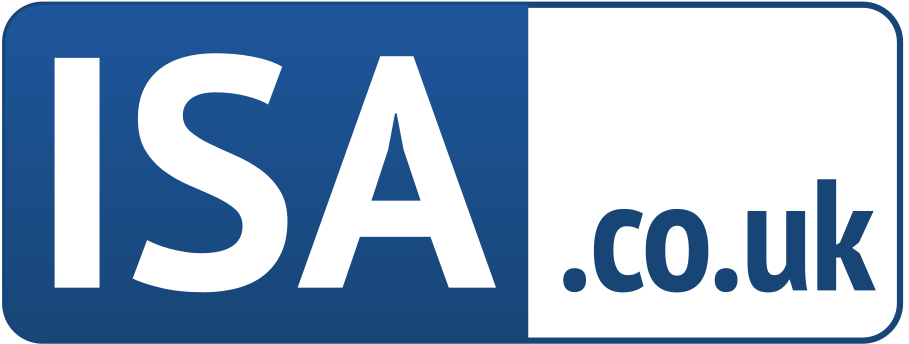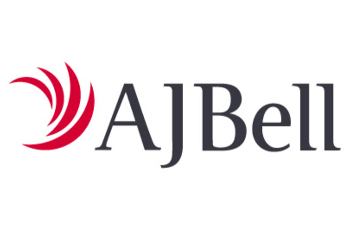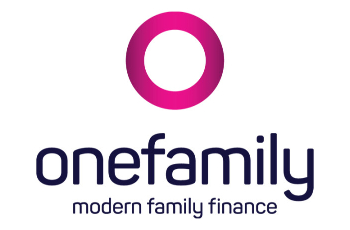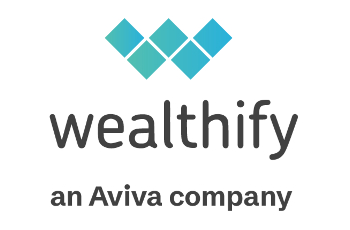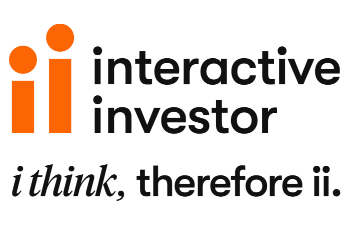Compare Junior ISA Rates
Select the best junior ISA Rates to make the most of this year’s tax free allowance.
Investment ISAs put your capital at risk & you may get back less than you originally invested
- Invest From: £25 pm
- Investment Options: AJ Bell offer a wide range of investments including shares, funds, investment trusts and ETFs (exchange traded funds)
Good to know: Which? Recommended Investment Provider. Invest from £25 pm or invest a lump sum up to £9,000 in the current tax year. AJ Bell offer a wide range of investment options. For a “no hassle” option, you can choose from one of 8 funds and AJ Bell Investments will do the rest. AJ Bell offer a AJ Bell Responsible Screened Growth fund’ focused on companies taking their commitment to the environment and society seriously. Capital at risk.
Show More- Invest From: £20 pm
- Investment Options: A choice of 9 funds, including a Unitised With-Profits fund that comes with a guaranteed minimum payout
Good to know: Take your pick from 9 funds with different levels of risk and reward to create your very own investment strategy for your child. Includes a Unitised With-Profits fund that comes with a guaranteed minimum payout when the child turns 18, provided no switches or withdrawals are made. Welcome Gift: After you start investing in a My Select (Junior ISA) Scottish Friendly will pay £50 into the Junior ISA for your child. Winner of Best Junior ISA Provider 2024 for the 6th year running at the Investment Life and Pensions Moneyfacts Awards. Capital at Risk
Show More- Invest From: From £10 a month or £100 lump sum
- Investment Options: Choice three investment styles which give you the freedom to invest your money in a way that’s rewarding and comfortable for you
Good to know: Invest up to £9,000 per year (current tax year limit). Also available for zero fee Junior ISA transfer held elsewhere, or child trust fund transfer. Choice three investment styles: Cautious (aims for modest growth with more investment in lower-risk assets), Balanced (aims for more growth with more investment in higher-risk assets), or Adventurous (aims to maximise growth with a focus on higher-risk assets). Manage your junior ISA 24/7 with their simple online account. OneFamily is an award-winning investment provider with over 45 years’ experience in helping families make the most of their money. OneFamily is owned by members for members, which means they don’t have shareholders to pay – so they can reinvest profits for good. To open a One Family JISA, the child must be under the age of 16 and funds cannot be withdrawn until the child turns 18. Annual Management Charge of 1.5%. OneFamily’s Junior ISA is a stocks and shares junior ISA. That means the money that you pay in goes into a fund that’s invested in the stock market. This gives your money good potential to outgrow interest rates, but there is a risk that its value could go down, which would mean your child getting back less than has been paid in. Capital at risk.
Show More- Invest From: From £1
- Investment Options: Choose from one of five investment styles based on risk, and a team of experts build your child’s Junior ISA, choosing which investments to buy and managing them on your behalf
Good to know: Junior ISA built and managed for you matched to your level of risk. Invest up to £9,000 in the current tax year. No minimum investment, invest from just £1. Raise, lower, or stop and restart your payments any time you like. Available for children under 18. The value of investments and any income can fall, so the Junior ISA could return less than you invest. Returns on investment funds are not guaranteed. Capital at Risk
- Invest From: £25 pm
- Investment Options: Choose from more than 40,000 UK and global investment options for your child's ISA
Good to know: ii offer a flat fee service which over time could save you money compared to platform providers who charge on the value of investments held. ii offer ready made funds including their ethical funds which allows you to invest in line with your principles covering environmental, social and governance factors. Capital at Risk
- Invest From: £10 pm
- Investment Options: Is an insurance based Junior ISA which invests in stocks and shares via a With-Profits pooled fund
Good to know: Your child’s money will be invested through a fund manager & will be invested primarily in stocks and shares, with the aim of achieving higher growth over the long-term than might be available through a cash-based Junior ISA. Open a Junior ISA for your child and get rewarded too. . Capital at risk. Please note: As with all investing, your capital is at risk you may get back less than you have put in. The value of the ISA will depend on the performance of the investments and any bonuses cannot be guaranteed. Additionally, if investment conditions are poor, we may apply a Market Value Reduction (MVR)
Show More- Invest From: £25 pm
- Investment Options: Invest in over 3,000 funds, UK and overseas shares, investment trusts and ETFs
Good to know: With an HL Junior Stocks and Shares ISA, you can choose investments for your child including UK and overseas shares, Investment trusts, bonds and exchange-traded funds (ETFs). HL have over 1 million clients who trust them for their investments. Capital at risk
- Invest From: £20 pm
- Investment Options: Choose either a ready made portfolio, or DIY with a choice of different funds
Good to know: Choice of ‘Ready-made’, an easy start option of investing in a single fund. These ready-made options could be an ideal choice to begin investing for your child. Alternatively choose from a selection of 9 funds to choose from, International Ethical Fund, so you can tailor your child’s investment, whether that is investing in just one, a mixture of all 9 or somewhere in between. Winner of Best Junior ISA Provider 2024 for the 6th year running at the Investment Life and Pensions Moneyfacts Awards. Capital at Risk. *Into the Junior ISA for your child.
Show More- Invest From: £10
- Investment Options: Allocate your savings between a cash money market fund / shares fund from L&G and Fidelity
Good to know: Rated the Best Junior ISA two years in a row at the Good Money Guide awards. Beanstalk app is free to download and use. The only charge is an annual fee of 0.5% on the value of any investments, one of the lowest around. Rated excellent on Trustpilot. Capital at Risk
What is a Junior ISA?
A Junior ISA (JISA) is an ISA account that is specifically designed for children’s savings.
Like any other type of ISA, all investments held within a Junior ISA are entirely free of tax.
Junior ISAs can be opened for a child by their parent or legal guardian. Friends, grandparents and other family members can contribute to their Junior ISA too.
Upon the child reaching the age of 18, the JISA is automatically converted into a standard ISA solely in the child’s name.
As with a standard ISA, you can either invest in a Cash JISA or a Stocks and Shares JISA. A Cash JISA will give you a fixed or variable interest rate, whereas a Stocks and Shares JISA will allow you to invest the funds in the stock market.
What are the rules for a Junior ISA?
As Junior ISAs are designed for children, there are a few more rules and restrictions on the accounts compared to standard ISAs. Below is a list of the main rules to be aware of when opening a child ISA.
Contributions:
- Each child has an annual ISA allowance as adults do
- The JISA allowance is £9,000 per child for the 2021/22 tax year
- This allowance refreshes each year, and so you can build up substantial savings for your child over a long period of time
- Although only a parent or legal guardian can open and control the account, friends and family of the child can still contribute to the child’s savings account
Withdrawals:
- No withdrawals are usually permitted before the child reaches the age of 18
- Once 18, a JISA will convert into a standard ISA and withdrawals are fully permitted for the account holder
- Usually, the only exception to this rule is if the child is suffering from a terminal illness, in which case early withdrawals can be permitted
What are the tax benefits of a Junior ISA?
Any investments in a JISA are completely free of the below taxes. This includes once the child reaches the age of 18 and the JISA converts into a standard ISA.
- No Capital Gains Tax
- No Income Tax
- No Dividend Tax
As a JISA will convert to a standard ISA after 18, even if the child holds the investments for several years, they will never have to worry about paying tax on any returns.
Are there any alternatives to a Junior ISA?
Bare Trusts
One of the main alternatives to a Junior ISA is a Bare Trust. A Bare Trust for a child is usually a General Investment Account (GIA) put into Trust with the child being the sole beneficiary.
When comparing Junior ISAs to Bare Trusts, the main benefits of a Bare Trust are:
- They can be opened and operated by anyone (e.g., grandparents)
- The child does not gain control over the account until it is gifted to them. This means it can be withheld for a particular occasion (for example, a house deposit) or for when they reach a certain age without them withdrawing it first
- There are no contribution limits
The main drawback of a Bare Trust compared to a Junior ISA is that there are no tax benefits.
With a Bare Trust, the tax liability usually falls to the beneficiary of the Trust unless they are a child. Once they are over 18, the beneficiary will need to declare any income, dividends or capital gains on their tax returns.
Please be aware that tax rules are subject to change, and you should speak to a professional tax adviser if you are in doubt.
Junior SIPPs (JSIPPs)
The other option for a child’s savings account is a Junior SIPP (Self Invested Personal Pension). These are just like standard SIPPs but for children, and children have the same pension contribution allowances as adults do.
The accounts also have the same tax benefits as an ISA regarding CGT, Income and Dividend Tax.
If the child is not earning any income, then their annual SIPP allowance is £2,880 for the current tax year (topped up by HMRC to a gross figure of £3,600).
There are some pros and cons of Junior SIPPs compared to Junior ISAs, as follows:
Pros
- The government adds 20% tax relief to any contribution as with adult pension contributions
- Gifts to a JSIPP are usually exempt from Inheritance Tax without needing to wait 7 years for them to be excluded from your estate
Cons
- A child cannot access the funds until retirement, which will be age 57 in 2028 and may rise higher (could be seen as a pro depending on your savings goals)
What are the best Junior ISA Rates?
Although you will struggle to match the potential returns available with a Stocks and Shares JISA, investing in a Cash JISA will ensure that your investments cannot lose money.
You have a choice between a fixed or variable interest rate, and which one is best for you will depend on your preferences. You can compare the best Junior ISA rates above, and here are some important factors to consider:
Fixed-Rate Junior Cash ISA
- Fixed terms will range from 1 to 5 years
- Generally, the longer the fixed term, the better child ISA rates you will receive
- If you transfer to another provider during your fixed term, you could be charged, or your earned interest will be void
Variable Rate Junior Cash ISA
- Generally, these have lower interest rates than fixed-term ISAs
- You can usually transfer away free of charge without voiding any fixed terms or being charged
Depending on how comfortable you are with committing to a fixed term, the longer you commit to, the better Junior ISA rates you will receive.
Considering that you cannot withdraw from a child ISA until the child is 18, you will likely be committing funds for the long term regardless. However, you may not be able to transfer to another provider in this period without being charged.
You also need to be aware that once the child reaches the age of 18, they are allowed to withdraw the money themselves.
How do I apply for a Junior Cash ISA?
You can apply for a Junior Cash ISA online once you have decided which provider and account to invest with. You will need to have the following information on hand:
- Your National Insurance number
- Your child’s National Insurance number (if they have one)
- Your debit card details if you want to make a lump-sum contribution
- Your bank details if you are going to set up a regular Direct Debit contribution
You can also apply for most JISAs over the telephone, or using a postal form and a cheque.
What if I am not the child’s parent or legal guardian?
If you are a grandparent or other family member, then you will not be able to open a Junior Cash ISA for the child. You may want to ask the child’s parents or guardian to set up the JISA instead so that you can then add funds to it.
Once the JISA is established, you will need to have the reference number of the JISA account to contribute to it.
Can I transfer a Child Trust Fund into a Junior ISA?
If your child already has a Child Trust Fund in their name, then you will be unable to open a Junior ISA account for them as you cannot hold both at once.
However, you can transfer a Child Trust Fund into a Junior ISA and then contribute to the JISA as usual. You will need to check with your Child Trust Fund provider and your new JISA provider if there are any charges to do this, and what the process is.
Can I transfer a Junior ISA to a different one?
If you find a Junior Cash ISA with great interest rates, you can usually transfer your previous year’s child Cash ISAs into the new one. You will need to check with your new provider how to do this, but it usually involves completing a transfer form.
You should also check with your previous provider to ensure that you are not charged excessively for transferring out or for voiding any fixed interest terms you may be committed to.
Unlike with a standard adult ISA, a child can only hold one Junior Cash ISA and one Junior Stocks and Shares ISA at a time. Therefore, if you already have a child Cash ISA you will need to transfer the whole ISA before you can contribute to the new one.
Frequently Asked Questions
How do I add money to a Junior Cash ISA?
You can add money to a Junior Cash ISA online, via a mobile app, over the telephone, or by post with a cheque.
You can either contribute with a lump sum or via direct debit with a monthly payment.
What is the Junior ISA allowance for 2022/23?
£9,000. This will refresh each tax year and HMRC reviews the amount each time.
Can you lose money in a Junior ISA?
If you invest in a Junior Cash ISA, your money cannot go down. However, if you open a Junior Stocks and Shares ISA then the investments you buy could fall in value as well as rise.
Can I withdraw from a Junior ISA?
No withdrawals are permitted until the child is 18, at which point normal ISA rules apply.
What happens when my child turns 18?
Your child’s Junior ISA will then convert automatically into a standard ISA account and will be in their full control. At this point, they will be able to withdraw funds as and when they please.
Can I open a Junior Cash ISA and a Junior Stocks and Shares ISA at the same time?
Yes, each child can have one Junior Cash ISA and one Junior Stocks and Shares ISA. Their annual allowance of £9,000 is split between each of these accounts and so your total contributions cannot exceed this figure.
Is a Junior ISA safe?
Junior ISAs are regulated by the Financial Condict Authority and covered by the Financial Services Compensation Scheme (FSCS). This will not protect you from losses in the underlying investments you hold in a Junior Stocks and Shares ISA, but it protects you if your JISA provider goes into administration.
